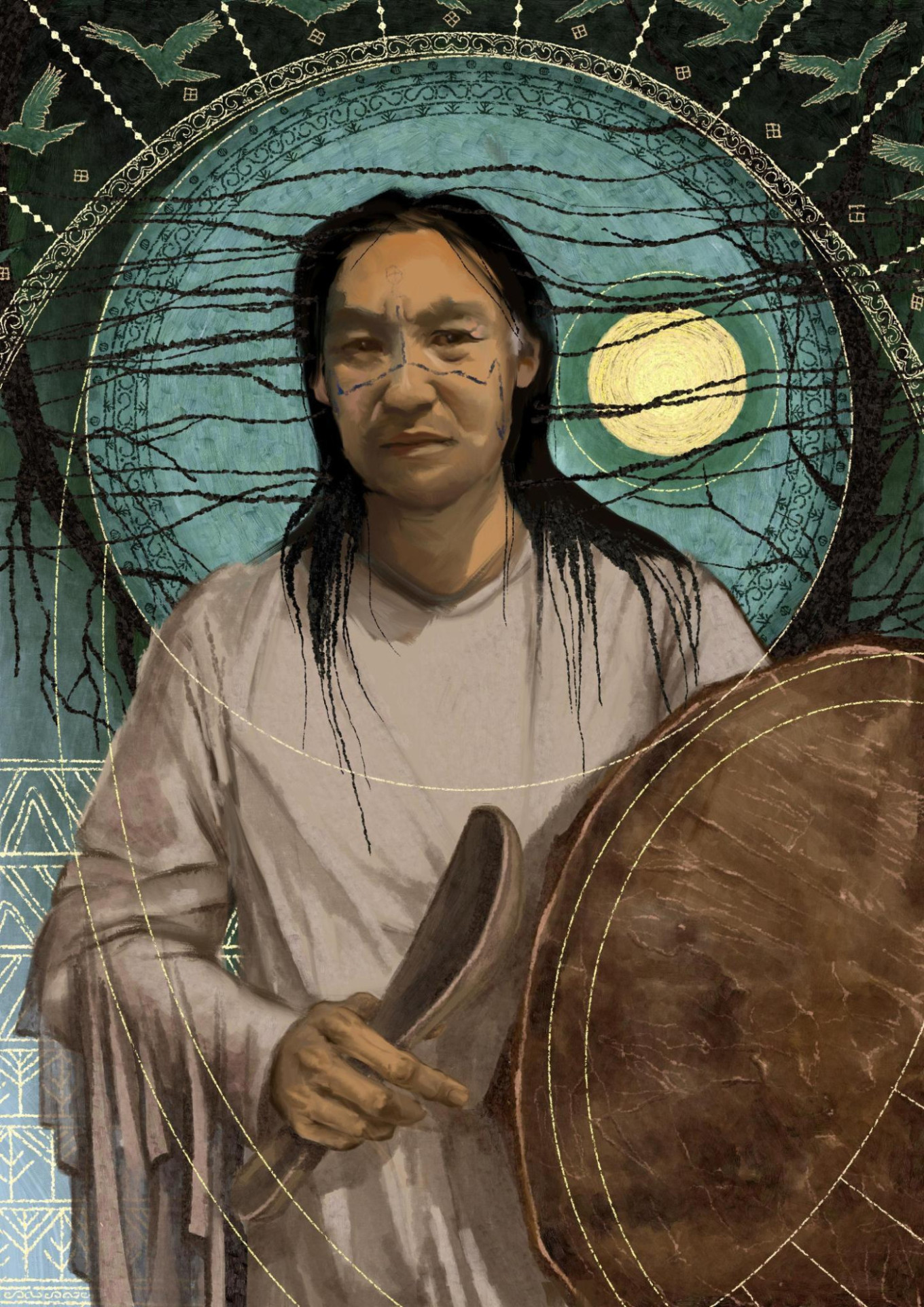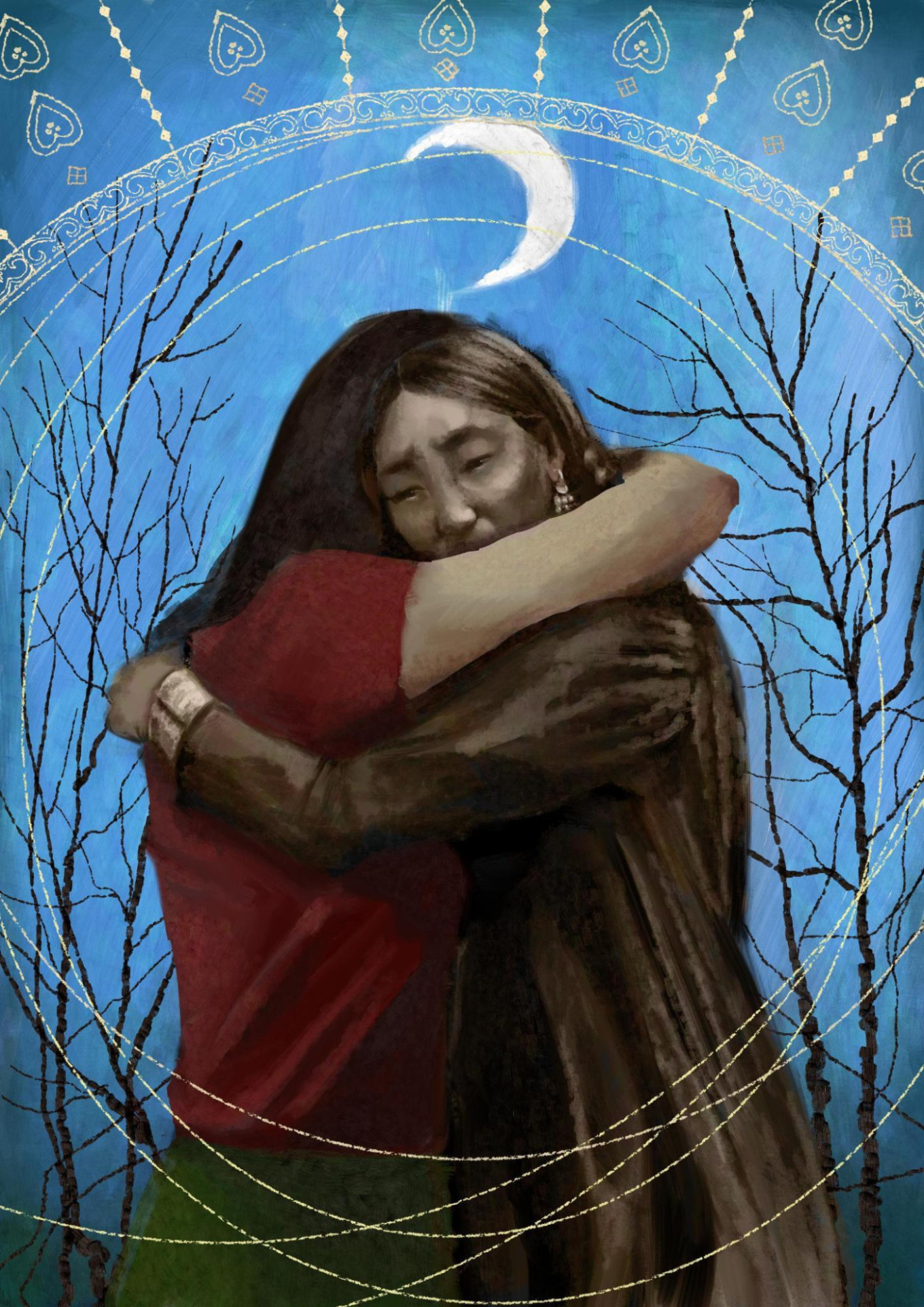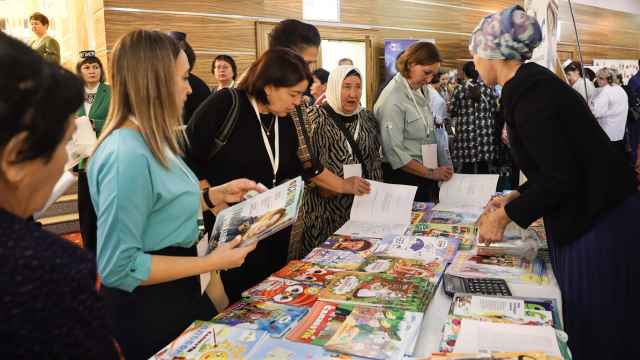Amsterdam’s bustling Red Light District has plenty to offer to visitors on a Saturday evening, but a showcase of art and music of Russia’s indigenous non-Slavic communities might just have been the most unique event that took place there last weekend.
Held at a local Walloon Church and organized by Netherlands-based anti-war collective Free Russia NL, a charity event called [Mirrors]: Reflections of the Unseen attracted dozens of locals and members of the Russian diaspora. They came looking to learn more about Russia’s ethnic and cultural diversity and support victims of Moscow’s invasion of Ukraine.
“I think many people in the West don’t necessarily see Russia as an empire…And I would like to make them question this,” said Lana Pylaeva, an ethnic Komi activist and board member of Free Russia NL.
“We want to say to Westerners: ‘Yes, we are Russians, but not ethnically. We exist. And we are against this war,” Pylaeva told The Moscow Times.
At the core of the journey across Russia’s ethnic republics was the display of prints by indigenous illustrators from Buryatia, Kalmykia, Khakassia, Sakha (Yakutia) and Tuva.
All the works on display were united by the artists’ shared heritage of shamanism, Turko-Mongolic folklore and myth-making and — in some cases — elements of Buddhism. But these creations also tell a common tale of the trauma inflicted by Russia’s colonial policies — policies that have facilitated cultural and linguistic erasure among non-Slavic ethnic groups living within its borders.

This trauma is also reflected in the event’s title, [Mirrors], where the brackets represent an invitation for each artist to fill in this space with the word in their respective mother tongue. But in most cases this space would have to remain blank.
“When I asked fellow illustrators if we could make a bilingual exhibit in English and their native languages, most said that they don’t know their native language [but know Russian],” said Seseg Jigjitova, a Berlin-based artist from Buryatia. “So the illustrators from our republics are reflecting on both their cultural and linguistic identity,” she added.
The only display featuring an indigenous language was by Sakha artist Sargylana Cherepanova, who looks to reconcile with her ancestral traditions and re-embrace her native culture in her work.
“I was neglecting my Sakha ancestors, my language, my culture because that’s what the russian system taught me to do, because the system spent so much money and effort to russify me,” Cherepanova writes of her work, choosing to spell “russia” with a lowercase letter to show contempt for its policies.

In addition to printed works, Cherepanova also uses videogames as a medium for reflection on Russia’s colonial policies. Her upcoming game Uhuktuu (“awakening” in the Sakha language) uses as its starting point the discrimination Russia's ethnic minorities and indigenous peoples experience at home and their disproportionate share of military casualties in the war in Ukraine.
Seseg Jigjitova was also influenced by Russia’s ongoing invasion of Ukraine.
On display in Amsterdam were excerpts from Jigjitova’s upcoming graphic novel that documents her personal transformation in the wake of the war and focuses on her deeply personal trauma of racial discrimination and marginalization in her native Siberia.
“My comics were supposed to start from 24 February, but when I started drawing, I realized that I need to go back to my university years when the war in Chechnya started…I try to understand why I didn’t question certain things then,” Jigjitova told The Moscow Times.
“After the war in Ukraine started, I suddenly realized that we don’t exist in the picture of the beautiful Russia of the future that is painted by the liberal opposition — and that we were never there,” Jigjitova explained.
“So I decided that we need to create our own vision of the future literally and figuratively.”
Another major highlight of [Mirrors] was a concert of traditional folk tunes and classical music from Russia’s ethnic republics performed by Netherlands-based concert pianists Maria Nemtsova and Aliya Iskhaki, saxophonist Vitaly Vatulya and violinist Yulia Gubaydullina.
The musicians performed works by Mari composer Andrei Eshpai, Komi composer Mikhail Gertsman, Sakha composer Nikolay Berestov, trailblazing female Dagestani composer Jennet Dalgat and her compatriot Gotfried Gasanov, as well as Tatar composer Almaz Monasypov — all of them rare musical treasures largely unknown to both foreign and Russian audiences.
“I didn’t want to play just classical music, but wanted to find pieces with folk elements,” pianist Aliya Iskhaki told The Moscow Times.
“I have been playing Tatar music in the West for several years and I know that the general public here is open and interested in hearing something they don’t know,” she said, adding that finding the sheet music had been “an adventure of its own.” Few copies of the music were printed in the Soviet Union and only some of the works were later digitized by devoted fans. Happily, they were willing to share them for this charity event.
All funds raised at the Saturday event were donated to a children’s hospice in Ukraine. The resilience of Ukrainians was also recognized by musicians who began the concert with a piece by Ukrainian composer Myroslav Skoryk, “Melody in A Minor,” which has become the unofficial spiritual hymn of the nation.
“Ukrainians are fighting for the right to be Ukrainian, to speak the Ukrainian language. They are fighting for their culture,” said Pylaeva of Free Russia NL.
“This resonates with many ethnic non-Russians in Russia.”
A Message from The Moscow Times:
Dear readers,
We are facing unprecedented challenges. Russia's Prosecutor General's Office has designated The Moscow Times as an "undesirable" organization, criminalizing our work and putting our staff at risk of prosecution. This follows our earlier unjust labeling as a "foreign agent."
These actions are direct attempts to silence independent journalism in Russia. The authorities claim our work "discredits the decisions of the Russian leadership." We see things differently: we strive to provide accurate, unbiased reporting on Russia.
We, the journalists of The Moscow Times, refuse to be silenced. But to continue our work, we need your help.
Your support, no matter how small, makes a world of difference. If you can, please support us monthly starting from just $2. It's quick to set up, and every contribution makes a significant impact.
By supporting The Moscow Times, you're defending open, independent journalism in the face of repression. Thank you for standing with us.
Remind me later.







